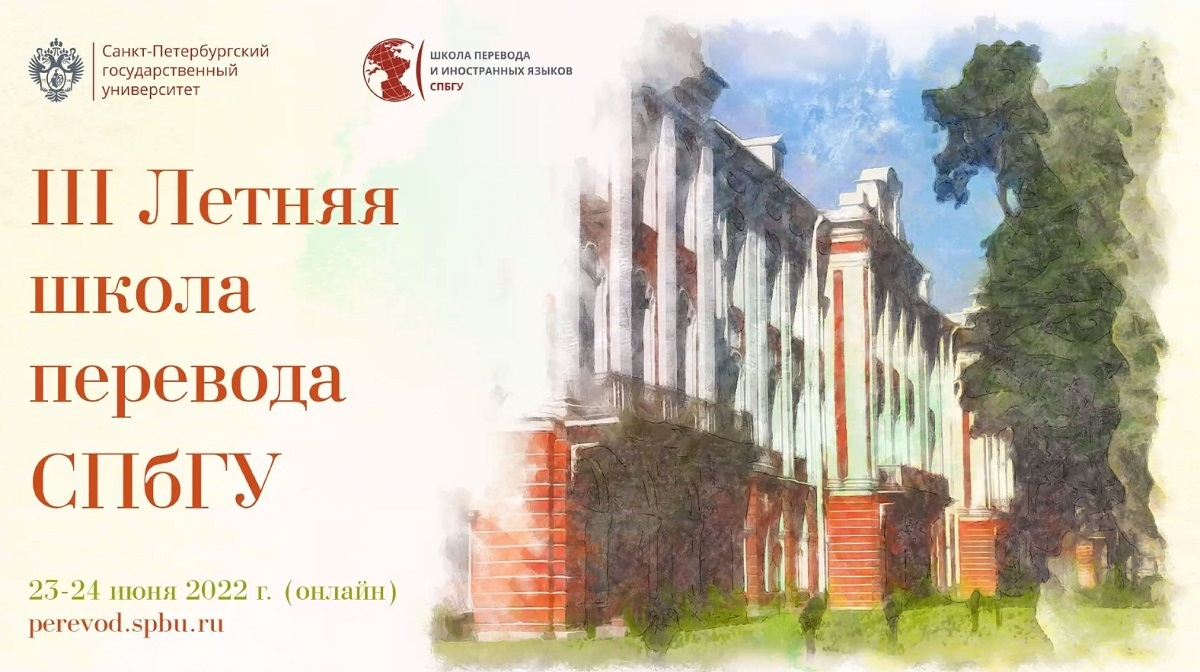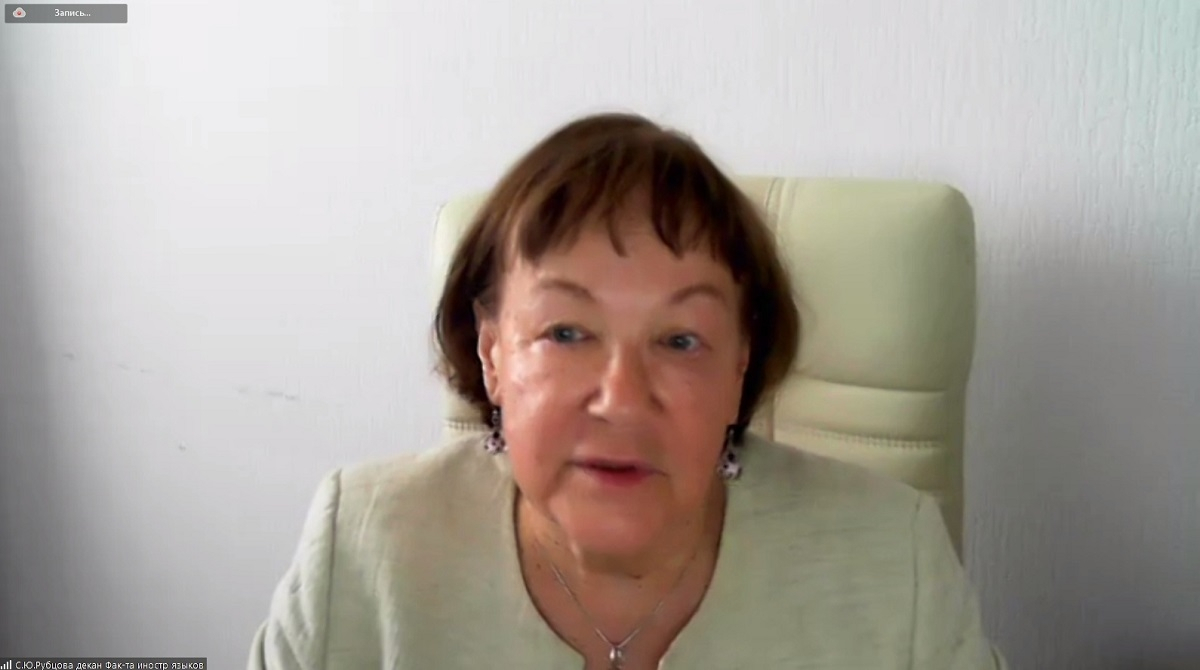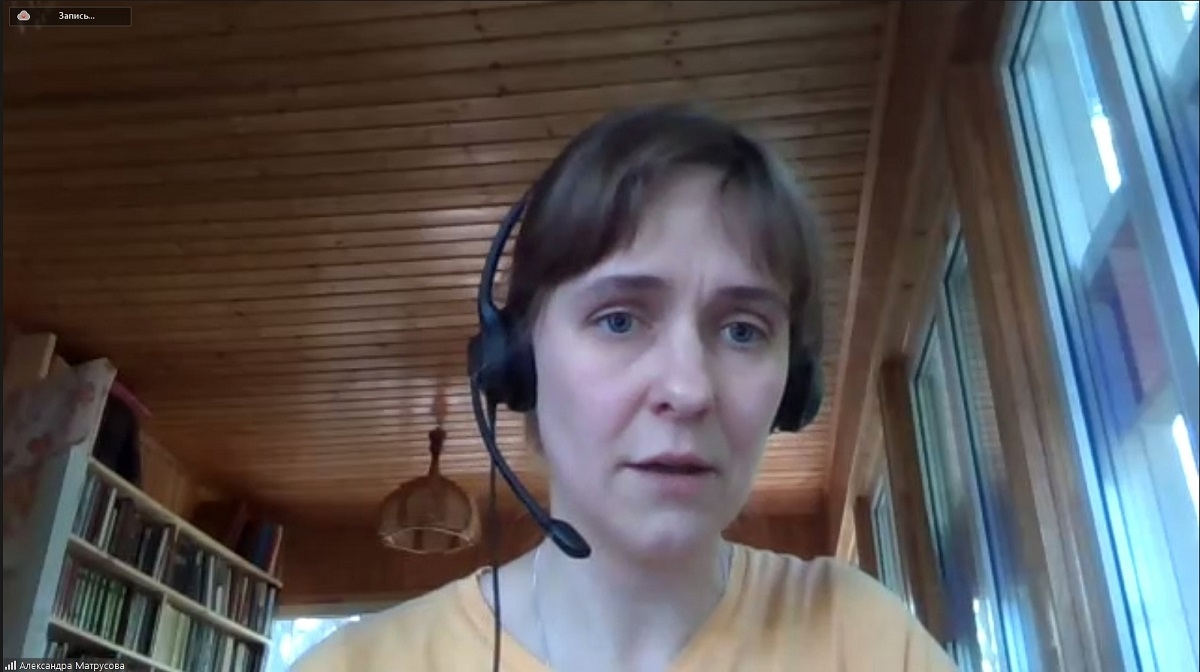"A person living in a bilingual world is an empath by default": the 3rd Summer School on Translation and Interpreting held at St Petersburg University
Over 800 people from Russia and 22 foreign countries have participated in the 3rd Summer School on Translation and Interpreting at St Petersburg University. The experts discussed the specific features of simultaneous and consecutive interpreting at international forums, interpreting and translation in the field of art and culture, and held master classes in consecutive interpreting.

‘In the work of an interpreter or translator, a commitment to lifelong learning is of the utmost importance. We are glad to welcome at our Summer School on Translation and Interpreting professionals who are committed to refreshing and updating their knowledge and practical skills year after year,’ emphasised Svetlana Rubtsova, Dean of the Faculty of Foreign Languages at St Petersburg University, in her welcoming address. ‘The advancements in machine translation technology lead to a pessimistic outlook on the future of the translation industry. Nonetheless, we are convinced that competent and qualified professionals will always be in demand. Translation and interpreting are subtle art forms. Only a human being is able to feel what is beyond the control of artificial intelligence.’

Kseniia Anisimova, Director of the School of Foreign Languages and Translation at St Petersburg University, spoke about non-degree programmes in the field of Translation Studies, new master’s programmes, and the upcoming projects of the School. Detailed information about each programme can be found here.
The main session was opened by Maxim Berendyaev, Director for Technology and Quality at AKM-West. He focused on the emotional component of interpreting.
As representatives of the humanities, we must be aware of the great responsibility assigned to us: interpreters and translators are cultural mediators who seek neutrality to foster mutual understanding among different cultures and traditions. It is only thanks to professionals in the humanities that compassion and humanity can survive in our hearts.
Maxim Berendyaev, Director for Technology and Quality at AKM-West
According Maxim Berendyaev, interpreters and translators need to take special care of their psychological health much more often than representatives of other professions.

‘We are involved in the internal processes and life of the language communities we work with. It is impossible to be a translator or interpreter without intercultural empathy. Hence, to minimise and manage stress at work, a professional needs to determine and follow his or her own set of rules,’ added Maxim Berendyaev. He also suggested that the university courses in Interpreting should include simulation exercises in order to train future interpreters to handle stressful situations and prevent emotional burnout.
Aleksandra Matrusova is a professional simultaneous interpreter, Candidate of Philology and Associate Professor in the General and Russian Linguistics Department at the Pushkin State Russian Language Institute. She shared with the audience techniques and exercises to improve the sound of your voice. According to the expert, the work of your vocal cords is affected by your whole body: your posture, head position, gestures, and so on.

Aleksandra Matrusova also offered some advice on how to keep your voice healthy through proper nutrition. For instance, she advised her colleagues to limit the consumption of coffee and strong tea, since these drinks contain tannins that negatively affect the elasticity of the vocal cords. Fermented dairy products, spicy foods, nuts and sweets are also included in the interpreters’ restrictions list. Additionally, Aleksandra Matrusova talked about: breathing exercises that help the vocal cords to wake up in the morning; remedies for tight jaw; and how to read tongue twisters correctly.
This year, new sections have been included in the School programme: the Korean; the Serbo-Croatian; and the Romance languages. Besides, during the round-table session, the participants discussed the issues of interpreting in extreme conditions and translation at the intersection of linguistics and psychology.
The Soviet and Russian interpreter and translator Pavel Palazhchenko, who worked with Mikhail Gorbachev and Eduard Shevardnadze (1985-1991), spoke about different stylistic traditions in English and Russian translation and approaches to text comprehension. The key speaker noted that written and oral texts can be distinguished by a number of features, including: processing time; perception; editing possibilities; interaction with the recipients; and some others. In the modern world, however, there is a trend towards convergence of these two types of texts, regardless of their differences. Thus, the time allocated for interpreting oral texts and translating written texts and the opportunities to edit them have been significantly reduced.
Speaking about genre conventions in different cultural traditions, Pavel Palazhchenko stressed that interpreters have to be able to adapt to the stylistic features of the languages with which they work.
In different cultures, there are particular discourse patterns that are firmly fixed in the minds of native speakers. Both the interpreter and the listener expect a certain logical arrangement of ideas in the text, in terms of content and style. Hence, for conveying information accurately and adequately, it is extremely important to be aware of all the nuances of the language material.
Pavel Palazhchenko, a simultaneous interpreter and translator
In his keynote presentation, Pavel Palazhchenko also talked about the concept of stylistic registers in Russian and English. The concept refers to a set of linguistic means the writer or speaker chooses to use to express his or her ideas. There are high, neutral and low language registers or styles. Each register has an appropriate use that is largely determined by the extralinguistic context. In English, the neutral register is prevalent in different types of texts. This style is deliberately simplified both in lexical and grammatical aspects. In Russian, on the other hand, in written communication, nothing but the high style is typically used, while in oral communication, the high and low styles can be combined.
The 3rd Summer School on Translation and Interpreting at St Petersburg University also offered: panel sessions on different language groups; master classes; and a round-table discussion on the psychological health of interpreters and translators.

